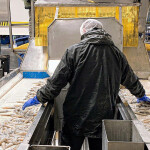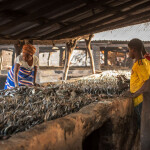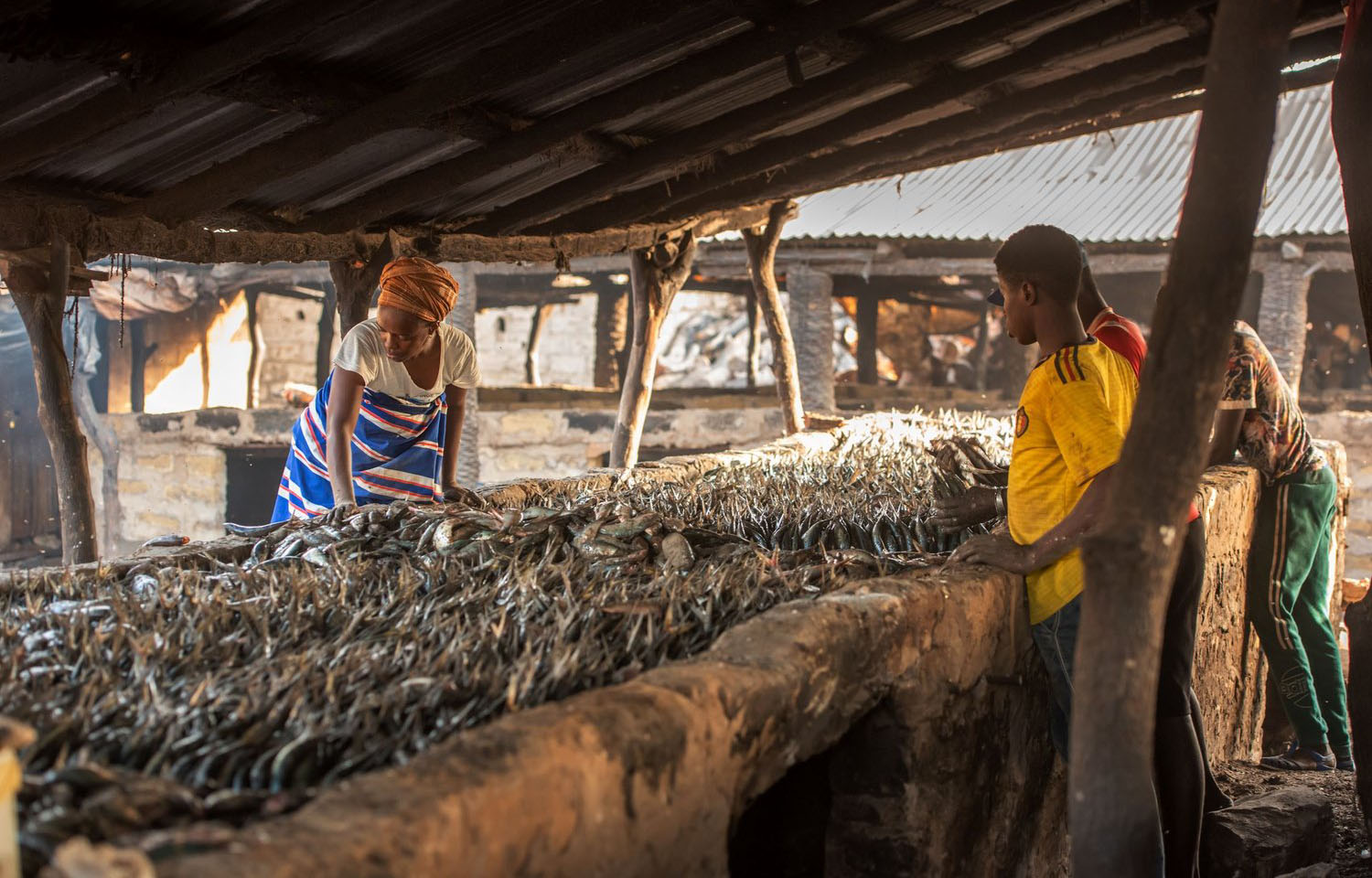A group of non-governmental organizations, including Oceana and Greenpeace, are calling on the Norwegian government to ban imports of African fishmeal.
In a 2 July letter sent to Norwegian government officials, including Norway Prime Minister Jonas Gahr Støre, the letter requests the government more stringently regulate the country’s salmon-farming industry. Specifically, the NGOs are requesting the industry be limited in its growth so it “remains within planetary boundaries,” adhere to full disclosure of suppliers from source fisheries through aquafeed suppliers, and institute an “immediate ban on the sourcing of fish oil from food-insecure regions, including Northwest Africa.”
“We are writing to urge the Norwegian government to take rapid action to regulate Norway’s salmon-farming industry in light of new findings highlighting its huge and growing appetite for wild-caught fish from food-insecure countries in the Global South,” the letter said.
The 39 organizations signing the letter include Feedback Global, Coalition for Fair Fisheries Arrangements, Naturvernforbundet, Ocean Rebellion, Sea Shepherd, Living Ocean Society, Aquatic Life Institute, Don't Cage Our Oceans, WildFish, Seas at Risk, and the Environmental Justice Foundation, the latter of which recently published numerous studies exposing sustainability issues in West Africa’s fishing sector.
A separate study commissioned in 2023 by the Global Roundtable on Marine Ingredients, an initiative co-founded by the IFFO - The Marine Ingredients Organization and the Sustainable Fisheries Partnership, found the fishmeal and fish oil industry in West Africa has mainly supported export market growth, leaving domestic seafood markets with dwindling amounts of fish available for human consumption, environmental degradation, and decreased income for fishers and factory workers.
“The fishmeal industry is a serious threat to food security and the future of fisheries in West Africa,” Greenpeace Africa Senior Ocean Campaign Manager Aliou Ba said in a press release. “This industry plunders our marine resources to feed intensive aquaculture in Asia and Europe, where local populations need it for their own food. It is time that the fish of the poor stopped feeding the fish of the rich.”
The letter claims the ingredients in fish oil that is then used by the Norwegian salmon-farming industry could provide up to 4 million people in Africa with a year’s supply of fish sufficient to meet their nutritional needs. Around 2 million metric tons of wild fish caught in countries like Mauritania and Senegal are used for fishmeal and fish oil production, including anchovy, sardine, sprat, herring, and sandeels.
“What some in Norway view as a corporate success story has come at the expense of communities and fish populations in the Global South,” the groups said. “A significant share of the fish oil Norwegian farmed salmon companies use is imported from Northwest Africa, depriving up to 4 million people in the region of fish to meet their annual nutritional needs. This is fueling a modern-day food imperialism, which, in addition to entrenching global inequity and food insecurity, is extremely inefficient: Norway’s annual output of farmed salmon is 27 percent lower than the volume of wild fish required to produce the fish oil used in Norwegian farmed salmon feed.”
The four largest aquafeed and fish oil producers – Mowi , Skretting, Cargill, and BioMar – supply nearly all the feed used in Norwegian salmon farming and all source fish oil from Northwest Africa, according to the letter. The number of fishmeal and fish oil plants in West Africa has increased from five to 49 in the past 10 years, it said.
“The Norwegian salmon industry is gobbling up fish from some the world’s most food-insecure regions, decimating fish populations, devastating livelihoods, and driving malnutrition,” Feedback Global Executive Director Carina Millstone said. “The Norwegian government must take rapid action now to regulate its extractive salmon industry and prevent further destruction.”
The Norwegian government’s support of its aquaculture sector “stands in stark contrast to Norwegian development policy, which has identified food security and the fight against hunger as a priority area, notably in Sub-Saharan Africa,” the letter said.








